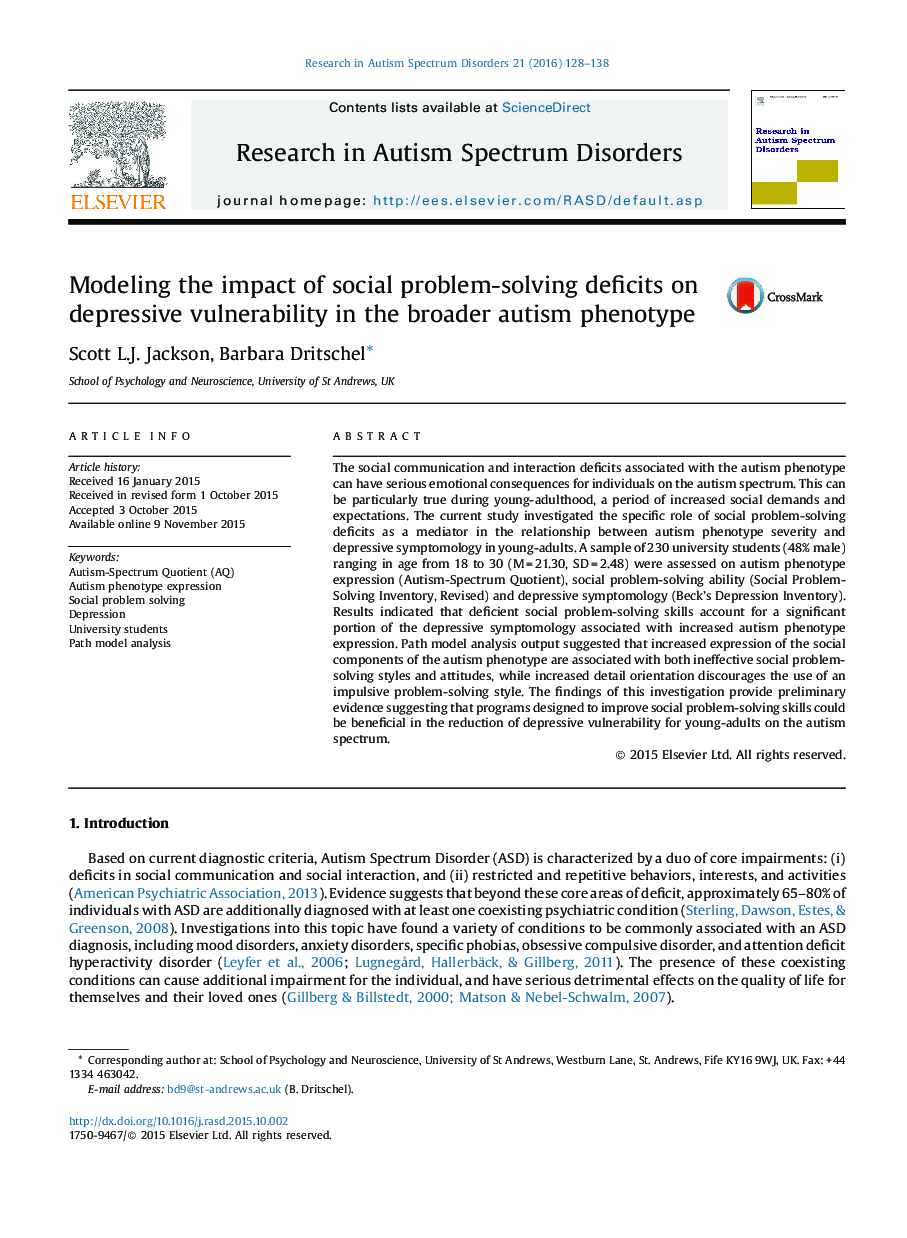| Article ID | Journal | Published Year | Pages | File Type |
|---|---|---|---|---|
| 369937 | Research in Autism Spectrum Disorders | 2016 | 11 Pages |
•Increased rates of depression are a serious issue for young-adults with ASD.•Disorder related social/communication deficits in combination with increased social demands during young-adulthood may provide insight into this issue.•The specific roles of social problem-solving deficits were assessed in a young-adult university student sample.•Findings suggest social problem-solving abilities account for a significant portion of the depressive vulnerability associated with ASD symptom severity.
The social communication and interaction deficits associated with the autism phenotype can have serious emotional consequences for individuals on the autism spectrum. This can be particularly true during young-adulthood, a period of increased social demands and expectations. The current study investigated the specific role of social problem-solving deficits as a mediator in the relationship between autism phenotype severity and depressive symptomology in young-adults. A sample of 230 university students (48% male) ranging in age from 18 to 30 (M = 21.30, SD = 2.48) were assessed on autism phenotype expression (Autism-Spectrum Quotient), social problem-solving ability (Social Problem-Solving Inventory, Revised) and depressive symptomology (Beck’s Depression Inventory). Results indicated that deficient social problem-solving skills account for a significant portion of the depressive symptomology associated with increased autism phenotype expression. Path model analysis output suggested that increased expression of the social components of the autism phenotype are associated with both ineffective social problem-solving styles and attitudes, while increased detail orientation discourages the use of an impulsive problem-solving style. The findings of this investigation provide preliminary evidence suggesting that programs designed to improve social problem-solving skills could be beneficial in the reduction of depressive vulnerability for young-adults on the autism spectrum.
